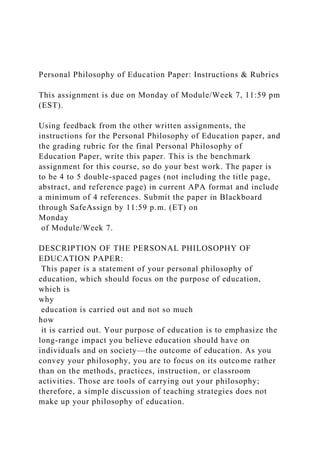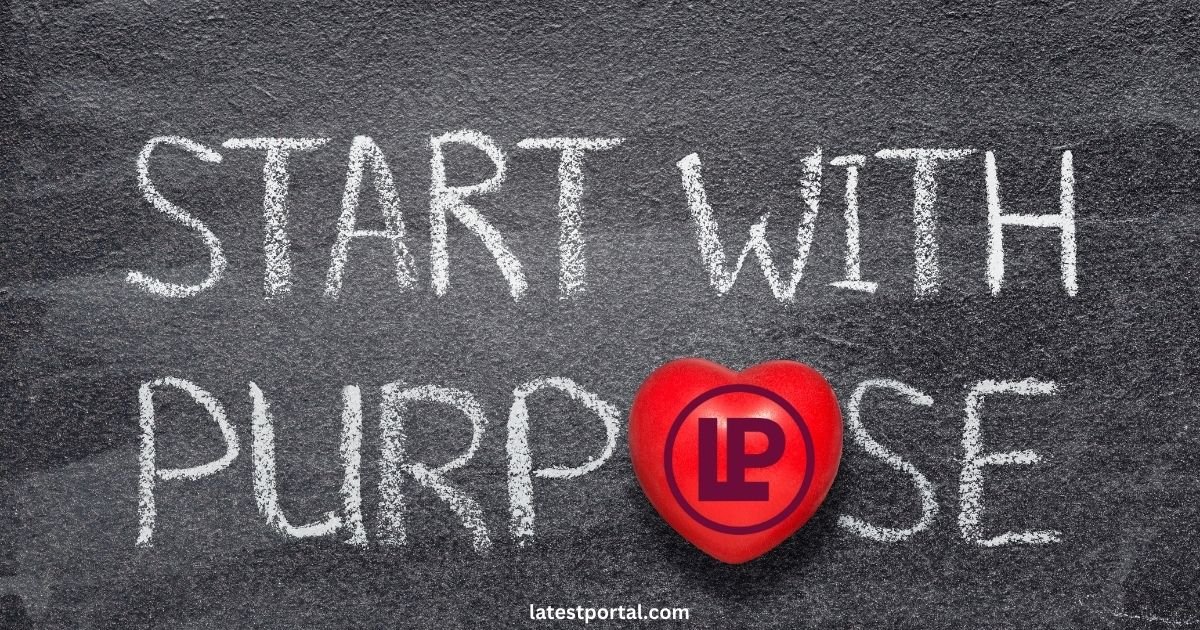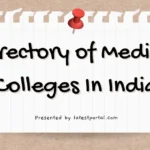Education’s purpose is to empower individuals with knowledge and skills. It fosters critical thinking and personal growth.
Education plays a vital role in shaping a person’s future. It equips learners with the essential knowledge and skills required for personal and professional success. Through education, individuals develop critical thinking and problem-solving abilities. These competencies are crucial for navigating life’s challenges.
Education also promotes social and cultural awareness, enhancing community engagement. A well-rounded education system nurtures creativity and innovation, driving societal progress. It helps individuals realize their potential and pursue their passions. By fostering a love for learning, education ensures continuous personal development. Investing in education is investing in a brighter, more prosperous future for everyone.

Credit: stjosephthejust.org
Purpose Of Education
The purpose of education is a topic that sparks much debate. Education aims to develop individuals intellectually, socially, and emotionally. It prepares them for life’s challenges and opportunities. This blog post explores the various facets of education’s purpose.
Foundations
Education builds the foundation for critical thinking and problem-solving. It equips students with basic skills like reading, writing, and arithmetic. These skills are essential for daily life and future learning.
Teachers play a crucial role in this process. They guide students through structured lessons. This helps students build a strong academic base.
| Skill | Importance |
|---|---|
| Reading | Enables comprehension and communication |
| Writing | Facilitates expression of ideas |
| Arithmetic | Helps with logical reasoning |
Historical Perspectives
Historically, the purpose of education has evolved. In ancient times, education was reserved for the elite. It focused on philosophy, literature, and arts.
In the Industrial Age, education shifted. It aimed to produce skilled workers. Schools emphasized technical skills and discipline. This prepared students for factory jobs.
Today, education has a broader scope. It promotes holistic development. This includes ethical values, cultural awareness, and emotional intelligence.
- Ancient Education: Focus on elite and arts
- Industrial Age: Emphasis on technical skills
- Modern Education: Holistic development
Personal Growth
Education is not just about acquiring knowledge. It also fosters personal growth. It helps individuals understand themselves better. Through education, people can develop crucial life skills. These skills lead to a well-rounded personality.
Self-discovery
Education plays a vital role in self-discovery. It allows students to explore their interests. They can identify their strengths and weaknesses. Schools and colleges offer various subjects and activities. These help individuals find what they are passionate about.
For example, a student may discover a love for science. Another might realize they excel in art. This self-awareness is crucial for personal growth. It helps in making informed career choices.
Emotional Intelligence
Emotional intelligence is the ability to understand and manage emotions. Education helps in developing this vital skill. Students learn to interact with peers and teachers. These interactions teach empathy and compassion. Here are some ways education enhances emotional intelligence:
- Classroom discussions encourage active listening.
- Group projects teach teamwork and cooperation.
- Extracurricular activities build confidence and self-esteem.
These experiences contribute to emotional maturity. They prepare individuals for real-world challenges.
Social Development
Education is more than just learning subjects. It plays a vital role in social development. Social development helps students grow as individuals and as part of a community. It builds skills for better relationships and understanding others.
Community Building
Schools serve as a community hub. They bring together students, teachers, and parents. This builds a sense of belonging and shared purpose. Students learn the value of teamwork and cooperation. They engage in group activities that teach them to work with others.
Engaging in community service projects is key. These projects teach students the importance of giving back. They learn to appreciate the impact of their actions on others. This fosters a sense of responsibility and empathy.
Cultural Awareness
Education introduces students to different cultures and traditions. This helps them understand and respect diversity. Students learn about various cultural practices and languages. They gain a broader worldview and become more open-minded.
Classroom discussions on global issues are essential. They help students see the world from multiple perspectives. This understanding fosters tolerance and reduces prejudices. Cultural awareness prepares students to thrive in a global society.
Economic Empowerment
The purpose of education goes beyond mere knowledge acquisition. It plays a crucial role in economic empowerment. Education equips individuals with the skills needed to succeed in the modern economy. By fostering critical thinking, creativity, and technical know-how, education empowers people to secure better jobs and start businesses.
Career Preparation
Education provides essential skills for the job market. It helps individuals develop soft skills like communication, teamwork, and problem-solving. These skills are vital for any career path.
Technical skills are also a focus of education. Many programs teach coding, data analysis, and other in-demand skills. These abilities increase employability and job security.
Education often includes internships and practical experiences. These opportunities provide real-world experience. They help students apply what they have learned in a professional setting.
Innovation And Entrepreneurship
Education fosters an environment of innovation. It encourages critical thinking and creativity. These skills are crucial for developing new ideas and solutions.
Many educational programs offer courses in entrepreneurship. These courses teach how to start and run a business. They cover topics like business planning, finance, and marketing.
Entrepreneurship programs often include mentorship opportunities. Experienced entrepreneurs guide students. This guidance helps them navigate the challenges of starting a business.
Education also provides access to resources like incubators and funding. These resources support the development of new businesses. They make it easier for entrepreneurs to succeed.
| Benefit | Description |
|---|---|
| Skill Development | Provides soft and technical skills needed for jobs. |
| Real-World Experience | Offers internships and practical experiences. |
| Innovation | Fosters critical thinking and creativity. |
| Entrepreneurship | Teaches how to start and run a business. |
Critical Thinking
Critical thinking stands at the core of education. It helps students evaluate information. This skill enables them to make informed decisions. It encourages questioning and curiosity. Students learn to think beyond the obvious.
Problem-Solving
Problem-solving is a key part of critical thinking. Students face challenges daily. They learn to find solutions through practice. Problem-solving teaches perseverance. It builds confidence in tackling future issues.
- Identifying the problem
- Generating possible solutions
- Evaluating the options
- Implementing the best solution
- Reviewing the results
These steps guide students through the process. They become adept at resolving conflicts. They also develop resilience.
Analytical Skills
Analytical skills are essential for critical thinking. These skills involve breaking down complex information. Students learn to understand and interpret data. They can draw logical conclusions.
| Skill | Description |
|---|---|
| Observation | Noticing and identifying details |
| Interpretation | Understanding the meaning of data |
| Evaluation | Assessing the quality of information |

Credit: www.slideshare.net
Moral And Ethical Values
The purpose of education extends beyond academics. It shapes moral and ethical values. These values guide students in their personal and professional lives. Education should foster a sense of right and wrong. It helps students become responsible citizens.
Character Building
Character building is a key part of education. Schools teach honesty, respect, and kindness. These traits help students form strong relationships. They also promote a positive school culture. Students learn to value integrity and compassion. This prepares them for future challenges. Character-building activities include:
- Group projects that teach teamwork
- Class discussions on ethical dilemmas
- Volunteer opportunities to help others
Ethical Decision Making
Ethical decision-making is crucial in today’s world. Education teaches students to evaluate choices. They learn to consider the impact of their actions. This skill is vital in both personal and professional settings. Key components of ethical decision-making include:
- Identifying the ethical issue
- Gathering relevant information
- Considering the consequences
- Making a well-informed decision
- Reflecting on the outcome
By teaching these steps, schools equip students to handle complex situations. They learn to act responsibly and ethically. This benefits society as a whole.
In conclusion, moral and ethical values are integral to education. They shape students’ character and decision-making abilities. This creates a better future for everyone.
Global Citizenship
Global citizenship is a key purpose of education. It helps students see beyond their local communities. They learn to understand and respect different cultures. This fosters a sense of belonging to a global community. Schools aim to create informed and active global citizens.
Global Awareness
Global awareness is about understanding worldwide issues. Students learn about climate change, poverty, and human rights. These topics are crucial for a well-rounded education. Key benefits of global awareness include:
- Enhanced critical thinking skills
- Better problem-solving abilities
- Increased empathy and compassion
Educators use various methods to teach global awareness. These include projects, guest speakers, and technology. This helps students connect with their global peers.
Social Responsibility
Social responsibility is another essential aspect of education. It teaches students to act ethically and make a difference. They learn the importance of helping others and protecting the environment. Ways to promote social responsibility:
- Community service projects
- Environmental conservation activities
- Fundraising for global causes
Through these activities, students develop a strong moral compass. They become more responsible and aware citizens. This prepares them to tackle future challenges.
| Aspect | Benefits |
|---|---|
| Global Awareness | Critical thinking, problem-solving, empathy |
| Social Responsibility | Ethical behavior, environmental protection, community service |
Future Of Education
The future of education is shaping up to be revolutionary. With rapid advancements in technology and evolving teaching methodologies, the landscape is continually changing. Understanding these shifts can help us prepare for a more inclusive and effective educational experience.
Technological Advancements
Technology is transforming classrooms. Artificial Intelligence (AI) and Virtual Reality (VR) offer immersive learning experiences. These tools make lessons more engaging and interactive.
Online learning platforms provide access to courses from top institutions. Students can now learn from anywhere in the world. This makes education more accessible and flexible. Here are some key technological advancements in education:
- AI-powered personalized learning
- Virtual and Augmented Reality simulations
- Online courses and MOOCs
- Interactive whiteboards and smart classrooms
Evolving Methodologies
Teaching methodologies are also evolving. Project-based learning focuses on real-world challenges. This approach enhances problem-solving skills.
Flipped classrooms are gaining popularity. In this model, students review materials at home. Classroom time is then used for discussions and activities. Here are some key evolving methodologies:
- Project-based learning
- Flipped classrooms
- Gamification of lessons
- Collaborative learning environments
The future of education looks promising with these advancements and evolving methodologies. Embracing these changes can pave the way for a better learning experience.

Credit: www.slideshare.net
Frequently Asked Questions
What Is The Purpose Of Education And Why?
The purpose of education is to empower individuals with knowledge, skills, and critical thinking. Education fosters personal growth, career opportunities, and societal development. It promotes informed decision-making and enhances problem-solving abilities. Education also helps build a better, more equitable world by addressing social issues and reducing inequalities.
What Are The Beliefs About The Purpose Of Education?
Beliefs about the purpose of education include personal growth, career preparation, and societal contribution. Education fosters critical thinking, creativity, and informed citizenship. It aims to develop individuals’ skills and knowledge for lifelong learning.
What Is The True Goal Of Education?
The true goal of education is to foster critical thinking, personal growth, and lifelong learning. It aims to develop well-rounded individuals capable of contributing positively to society. Education empowers individuals with the knowledge and skills needed for personal and professional success.
What Is The Purpose Of Learning?
The purpose of learning is to gain knowledge, develop skills, and improve personal and professional growth. It enhances problem-solving abilities and promotes critical thinking, enabling individuals to adapt to changes and achieve success.
Check also: What is the Difference between Education And Experience
Conclusion
Education shapes our future by fostering critical thinking and personal growth. It equips individuals with essential skills and knowledge. The purpose of education extends beyond academics, promoting social responsibility and lifelong learning. Embrace the transformative power of education to achieve personal and societal progress.
- Universal Medical College Hospital All Doctor List 2025
- AMZ Hospital Badda All Doctor List , Appointment, Fee 2025
- BRB Hospital Dhaka All Doctor List, Appointment & Cost
- এভারকেয়ার হাসপাতাল ঢাকা সকল ডাক্তারদের তালিকা ২০২৫
- Evercare Hospital All Doctor List 2025
- India All State Medical Colleges List 2024
- Top 20 Ranking MEdical Colleges in India 2024
- What is the Difference between Common Application and University Application?
- How Much are University Tuition Fees in the UK: 2024 Cost Guide
- What to Do If Your University Application is Rejected: Complete Guidelines
- Why It is Important in the University Application Process: Key Insights
- Difference between State University And Private University: Key Insights













2 thoughts on “What Do You Believe is the Purpose of Education: Unveiling Truths”